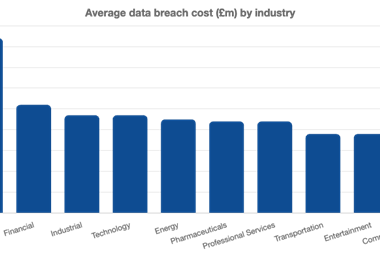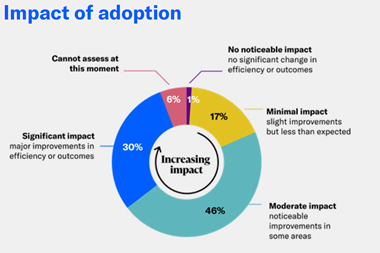The internet is changing the relationships between companies and their customers and between companies and their shareholders. This is happening despite the fact that many of those involved are unclear as to what the internet really does. The notion that it is like a huge library gets it right in an unexpected way. If you were ever a student, you probably went to the library partly because that's where the books were, but also because that was where other students went. The same logic applies to the internet. The huge amount of information available makes it useful, but it is the interaction with other people you meet there which makes it special. The internet discussion boards are where the users of the internet meet.
An investors' discussion board is something like a cross between the letters page of the Financial Times and a shared e-mail inbox. The name comes from the idea that these boards are the internet equivalent of the notice board you might find on any office wall. By extending the metaphor it is easy to see what kinds of things happen on these boards. A reader might start a debate on the letters page and be answered by other readers week by week. On a physical notice board you might post an announcement of a meeting, follow up with the agenda and maybe add the minutes after the event. Both notices and letters are in public. There may be many topics displayed on a notice board at once. Anyone with a drawing pin can publish what they like. Later topics will obscure earlier ones. Maybe someone is responsible for tidying the notice board, but a lot depends on people being responsible and reasonable in the way they use it. However, as with any digital medium, if it catches on it is because it goes beyond the metaphor on which its design was based.
The things which make internet discussion boards special include some of the following:
The participation rate will certainly be higher on a discussion board than in a newspaper's letters page, but it will still be a tiny minority who make the effort to join in. A newspaper with a circulation of hundreds of thousands may publish ten letters from the tens of letters it receives. That is a participation rate of about 1 in 10,000. The participation rate on a discussion board will be more like 1 in 100. So while most people will be readers, not posters the overall participation rate will be higher .
There are several systems of discussion boards which are focused on the discussion of shares. The longest established of these is The Motley Fool. The intended audience for these discussion boards is shareholders and potential shareholders. These could be either long term investors who want to talk about the prospects of the company of which they are part owner, or short term traders who are primarily interested in market sentiment and trends. And it is not a small audience. The Motley Fool website, for example, has a regular readership (defined in terms of 'unique visitors') of about 250,000 internet users. Of these over 100,000 regularly visit the discussion board area of the website. There are between five and ten thousand people who regularly post messages on the boards, giving a participation level of 1:200 of those who visit the discussion boards. Then, the Fool is just one of the websites providing this sort of service for shareholders; there are at least three others (AMPLE, ADVN, Hemscott) with an audience of comparable size or larger. While there will be some overlap in these audiences, it is fair to assume that the size of the total readership of investment discussion boards is probably in excess of 250,000. This makes it several times the circulation of the Investors Chronicle and about half the circulation figures of the Financial Times.
Visitors to a discussion board discuss investment in the company from many perspectives. These might include:
Other stakeholders will also wander across the stage from time to time. These will include members of staff, customers, and investors in competing companies. There are also the internet equivalents of graffiti artists and vandals, who come simply seeking attention.
From a legal point of view, the users of the discussion board are responsible for their messages, as they would be anywhere else. In the past, some discussion board host organisations acted as if they were simply 'common carriers', and no more responsible for what was said than the phone company is for something sent by fax. However, what has become known as 'the Demon case' has set some case law. Now discussion board administrators are responsible as publisher, once they can reasonably be expected to be aware of a message. We must respond in a timely manner when a problematic message is brought to our attention. Most discussion board systems will have a mechanism through which to report a message to the administrators. On The Motley Fool discussion boards there is a link called 'Report this Post' which appears next to every message and allows any reader to make a private comment about the message to the discussion board administrators.
Outsider risks and insider risks
We can divide the risks posed by discussion boards into 'Insider Risks' and 'Outsider Risks'. The most discussed risk from the outside comes from what are known as 'rampers'. These are people who seek to influence a share price for short term advantage. They may try to do this by manipulating news, by claiming to have some sort of insider insight or possibly by outright fraud, such as faking an RNS (Regulatory News Service) report.
Most of these attempts are futile. A careful investor will seek corroboration of any story before acting on it. The number of people who would act solely on something published an internet discussion board is so few that it will not influence the price of anything but the lowest priced of penny shares with a tiny market capitalisation. There have been one or two more serious attempts at fraud (see case study).
In many ways the interactive nature of the discussion board is the best protection against the risk of rampers. This is because every reader provides a new pair of sceptical eyes to cross check a claim and to contradict unsubstantiated claims. Even so, this is not something to be complacent about. The internet is all about rapid communication, and a well-connected investor relations department which can move quickly to quash a spurious rumour can be invaluable in protecting the real interests of your shareholders.
Other outsider risks include attacks on the company's reputation by competitors, by ex-members of staff, by disgruntled customers or by campaigners of one sort or another. If a message defames a member of your company, or if it reveals information which is properly subject to a confidentiality or non-disclosure agreement, it should simply be reported to the discussion board administrators who will usually remove it. It should be made clear to board administrators that the report is being made officially on behalf of the company.
If a message is simply expressing an unfavourable opinion, someone within the company must make the decision as to whether a response is called for. If it is decided to intervene, it is as well to be aware aware of what works and what doesn't. A simple factual response is best. Using the persuasive language that comes naturally to your sales team can be disastrously inflammatory. The last thing that you want is for someone who is seen as a representative of the company to get into an argument with other users of a discussion board, nor to provoke them into arguing with you. The person intervening should be clear where the balance lies between public relations, customer relations and investor relations. You should have a specialist from each of these three roles who is equipped to intervene when needed.
The insider with attitude
The obvious risk arising from within a company is that some disgruntled employee may take an argument into the public domain. However there are also risks from the well intentioned insider. Someone seeking to reassure investors that all is well may in fact leak information which compromises a competitive advantage or infringes FSA regulations. Then there are risks to external relationships. A enthusiast from inside the company may inadvertently insult or defame customers or competitors, when what they meant to do was boast about their own company's achievements. An over-enthusiastic insider who thinks he is being helpful can be a legal and PR disaster.
A company whose product is essentially IPR (Intellectual Property Rights) is particularly vulnerable, because someone either inside or outside the company may be giving away the product, for example by posting content which is normally only available on subscription.
These insider risks can result in:
To guard against such insider risks you need to have a clear policy on access to the internet. Staff need to understand what information is company-confidential, and the implications of FSA regulations on inside information. On the other hand, you cannot uninvent the internet. Just as it is unsustainable to ban the use of the telephone for any personal call or to disconnect every fax machine which has ever received a junk fax, you cannot ban staff from the internet. You need to set up an access policy which guides staff towards best practice.
An outright ban will merely drive staff to unauthorised use. The internet is somewhere where you can lead, but where you can't control. Looked at in a positive light, every member of staff making use of the internet within your policy framework is another person on the look out for problems. Staff need to be briefed so that they recognise the various types of internet based risk. They should know which department to alert when they find a problem: public relations, customer service or investor relations. Each of those departments should have someone whose role includes responding to internet based risks.
In common with other discussion boards The Motley Fool boards prohibits the posting of promotional messages. However they will invariably be delighted to have a spokesperson for the company responding to shareholders, or a customer service representative taking up issues from customers who have wandered into the shareholder area.
The internet is here to stay. It is important for every company to have a clear credible policy on the use of the internet by its staff. Every company needs to know what is being said about it on the internet and to be ready to react if these things are inaccurate or inappropriate.
The Motley Fool website, www.fool.co.uk, has been providing discussion boards for shareholders since 1997.Its mission is to help its readers take control of their finances. Throughout that time George Row has been the producer for that area of the website.
Case Sudies From The 'Formal Contact With The Company' File
The vast majority of the discussion which take place on The Motley Fool discussion boards are worthwhile for the shareholders and for the company. But here are a few examples of problematic discussions. Through necessity, these examples have been made anonymous.
The fraudster had registered multiple email addresses and multiple discussion board usernames and spent weeks gradually building the credibility of those names. Then among the factual messages he wove a fiction in which those identities argued and speculated about the possibility of the imaginary reverse take-over. On the day he finally planned to spring the trap he added a faked RNS item and his various identities finally all agreed with each other that the deal was real. Neither of the companies involved were aware of what was being said about them. Fortunately, he had over-estimated his abilities as a novelist and the story just didn't look right to some of the discussion board administration staff. As we investigated, the web of lies disintegrated in our hands.
Evolving and Internet access policy
The internet has changed information relationships. Things which could have been neglected in the past now must be addressed in your policy for managing internet risk.
Insider Risks
Outsider Risks



















